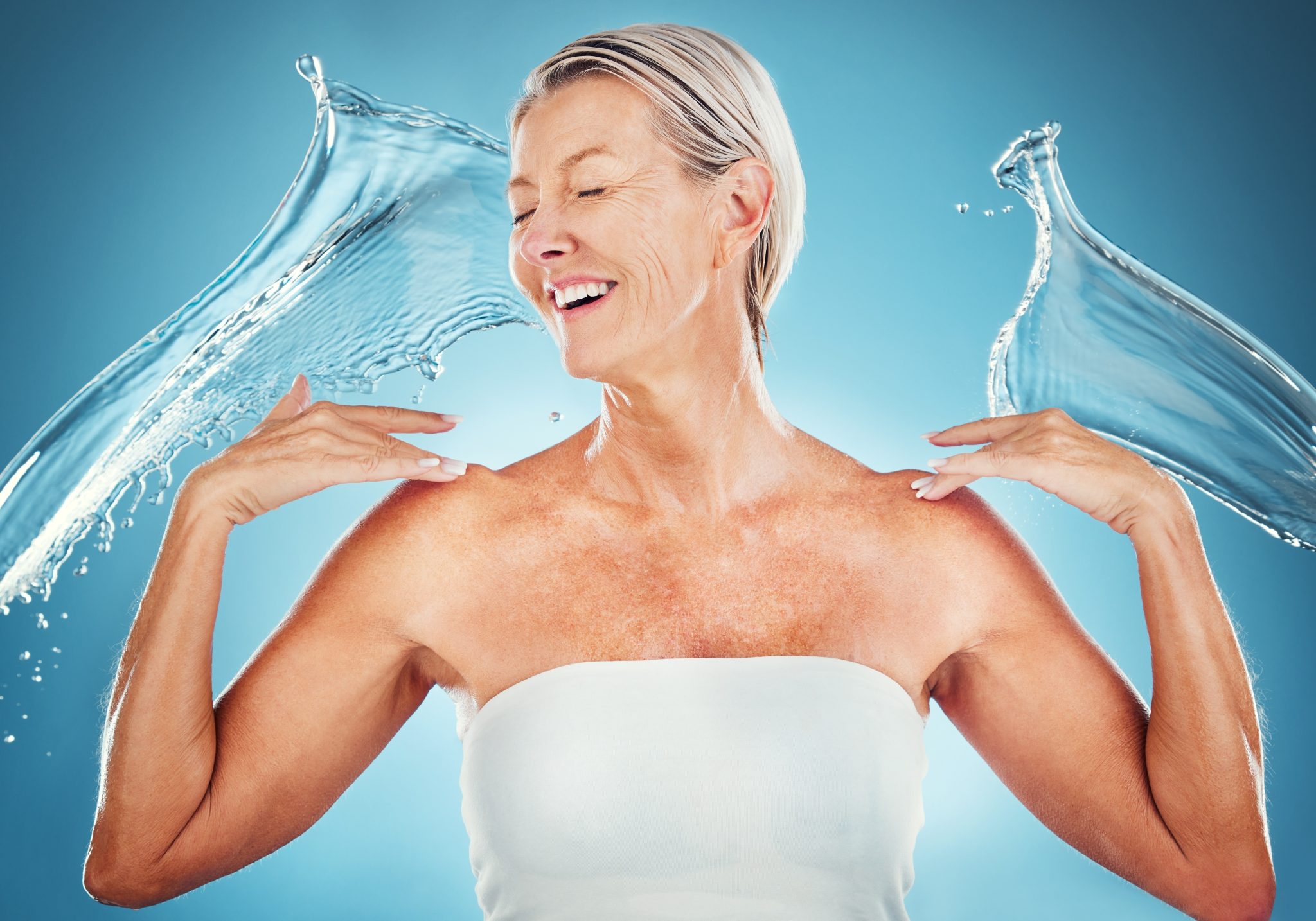Menopause Skin Changes Are Real — Here’s How to Glow Through It
One day your skin is smooth and glowing — the next, it’s suddenly dry, irritated, and breaking out like it’s 2003. Welcome to menopause skin, where hormonal shifts create new textures, tones, and challenges you didn’t see coming.
But here’s the truth: just because your hormones are changing, doesn’t mean you can’t glow. With the right care, you can support your skin from the inside out and thrive through this powerful midlife transition.
Let’s break down what’s really going on — and what actually works.
What Happens to Your Skin During Menopause
As estrogen levels decline during perimenopause and menopause, your skin loses key components that keep it plump, hydrated, and resilient.
Major changes include:
- Collagen loss (up to 30% in the first 5 years post-menopause)
- Reduced skin elasticity
- Dryness and itching
- Thinning of the skin
- Slower wound healing
- Increased sensitivity or redness
- Hormonal breakouts (yes, really)
- Hyperpigmentation or uneven tone
Estrogen helps regulate moisture, oil production, and barrier protection — so when it drops, your skin starts acting very differently.
Is It Perimenopause or Menopause?
Most skin changes start during perimenopause, which can begin as early as your late 30s or early 40s.
Signs your skin might be shifting hormonally:
- Products you once loved now irritate your skin
- You’re drier and more breakout-prone
- Your glow feels like it’s disappeared overnight
- Your skin bruises or creases more easily
- Makeup doesn’t sit the same way it used to
These aren’t random — they’re hormone signals. And they’re totally valid.
How to Support Menopausal Skin (Without Buying Every Serum)
Let’s get to the glow-up strategies — science-backed, hormone-smart, and actually doable.
1. Ditch the Stripping Cleansers
Say goodbye to foaming, alcohol-based cleansers. Swap in:
- Cream or oil cleansers that hydrate while they clean
- Micellar water for sensitive skin days
- Low-pH formulas to preserve your skin barrier
Less foam = more hydration.
2. Bring in the Hydration Powerhouses
Layering is key. Your skin needs moisture AND barrier repair.
- Hyaluronic acid: Attracts water into the skin
- Ceramides: Rebuilds skin’s protective layer
- Squalane: Mimics skin’s natural oils
- Niacinamide: Calms irritation and supports elasticity
Pro tip: Apply hydrating serums on damp skin, then seal with a rich moisturizer.
3. Collagen Support (Topical & Internal)
Your body’s natural collagen production dips sharply during menopause.
Support it with:
- Peptides in serums
- Vitamin C (both topical and in your diet)
- Marine or bovine collagen powder (check quality)
- Retinoids (if tolerated — go slow and moisturize after)
Don’t expect overnight results — collagen rebuilds take time, but consistency pays off.
4. SPF Is Non-Negotiable
Sun damage speeds up aging, increases pigmentation, and weakens already-sensitive skin.
Daily use of broad-spectrum SPF 30+:
- Prevents fine lines
- Reduces age spots
- Protects thinning skin from further breakdown
Even if you’re indoors — UVA rays still come through windows.
5. Focus on Anti-Inflammatory Nutrition
What you eat shows up in your skin. Support hormone balance and glow with:
- Omega-3s (salmon, chia seeds, walnuts)
- Antioxidants (berries, leafy greens, matcha)
- Hydration (water + electrolytes)
- Protein (for skin repair and collagen production)
Limit processed sugar, alcohol, and ultra-processed foods — they spike inflammation and worsen skin issues.
6. Sleep Like Your Skin Depends on It (Because It Does)
During sleep, your skin goes into repair mode. Aim for 7–9 hours and support deep rest with:
- Magnesium
- Chamomile or reishi tea
- Blue-light blocking after 7 PM
- Evening wind-down ritual (cleanser, serum, breathe)
7. Know When to Ask for Help
Dermatologists and hormone-literate practitioners can support menopausal skin with:
- Prescription retinoids or hormone-safe skincare
- HRT (hormone replacement therapy), which may improve skin texture
- Microneedling, PRP facials, or radiofrequency for collagen regeneration
You’re not being vain — your skin is your body’s largest organ. You deserve support.
Real Talk: This Is Not About “Anti-Aging”
Let’s ditch that phrase for good. You’re not fighting age — you’re supporting your skin through a natural transition.
This is about:
- Feeling confident in your skin
- Embracing change with knowledge
- Giving your body what it needs — not punishing it
You’re not aging out of beauty. You’re growing into a new glow.
Final Thoughts
Menopause doesn’t mean giving up on vibrant skin — it means learning how to care for it differently.
With the right tools, nourishment, and mindset, you can feel radiant in your skin — not despite the changes, but because of them.
You earned this stage. Let your skin reflect your strength, not your stress.










